The Lionesses will need to beat an entire nation in the grip of World Cup fever
Hosts Australia face England on Wednesday for a place in the World Cup final, but the Matildas’ legacy, as Jamie Braidwood writes, is already secure

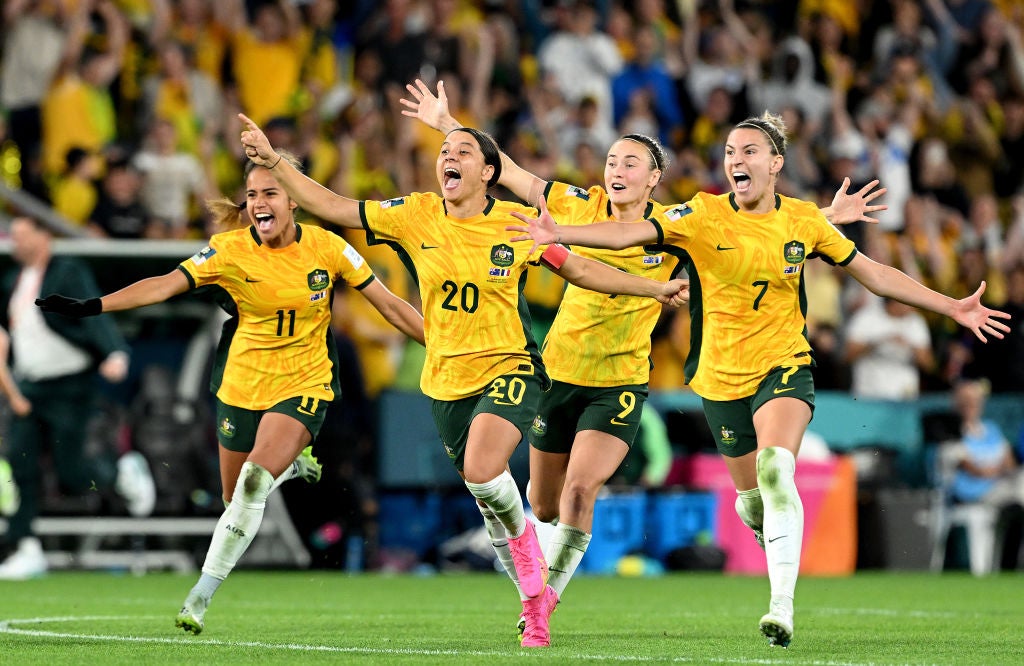
It was the moment Australia stopped. In Sydney, thousands gathered outside the Olympic Stadium and huddled together in the crisp winter air. In Melbourne, the Saturday night crowds at the MCG forgot about the Aussie rules match they had paid tickets for and rushed to find a TV or phone screen to see the drama unfold. Even several miles in the air, rows of passengers on a commercial flight were all gripped by the same tension that was uniting a country back down on the ground.
And then in Brisbane, as Cortnee Vine stood over the penalty to send Australia through to the Women’s World Cup semi-final, all those eyes were on her. After a goalless, nerve-shredding 120 minutes against France, the shootout produced an unimaginable level of drama, the longest ever at a men’s or women’s World Cup. Australia had already missed two chances to win it, then they simply had to score to keep their home World Cup hopes alive. When Vicki Becho struck the post with France’s 10th penalty and Australia were granted another opportunity, Vine stepped up and sent a nation into delirium.
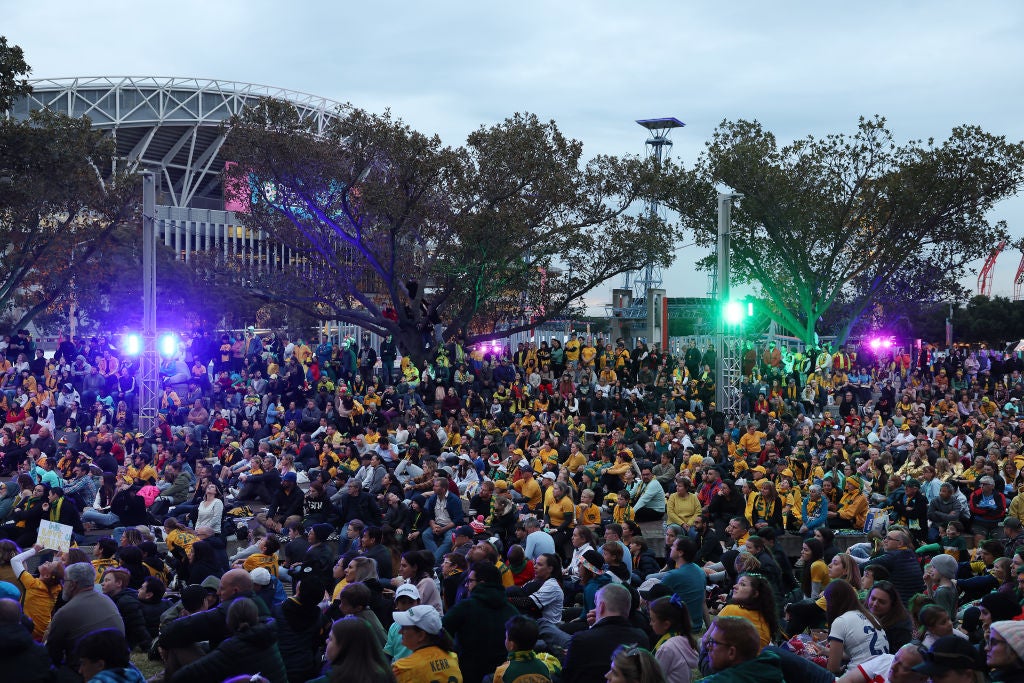
With it, Australia’s World Cup fever truly arrived. The excitement around the tournament and the team – or the Matildas, as they are affectionately known – had already been record-breaking, but Australia’s shootout win over France took those numbers off the scale. Watched around the country by more than five million people, it was reported to be the largest TV audience in 20 years, the biggest since Cathy Freeman ran for her iconic 400m gold at the 2000 Sydney Olympics.
This was Australia’s biggest night since then and one that shook up its established sporting order. At the MCG, during the first-quarter break between Melbourne and Carlton, the shootout was live-streamed on the stadium’s big screen. For comparison, it would be like the England women’s rugby union team being shown at Old Trafford during half-time of Manchester United vs Liverpool. It represented the unthinkable, a sporting institution upstaged. No matter where they were, Australians just wanted to watch the Matildas.
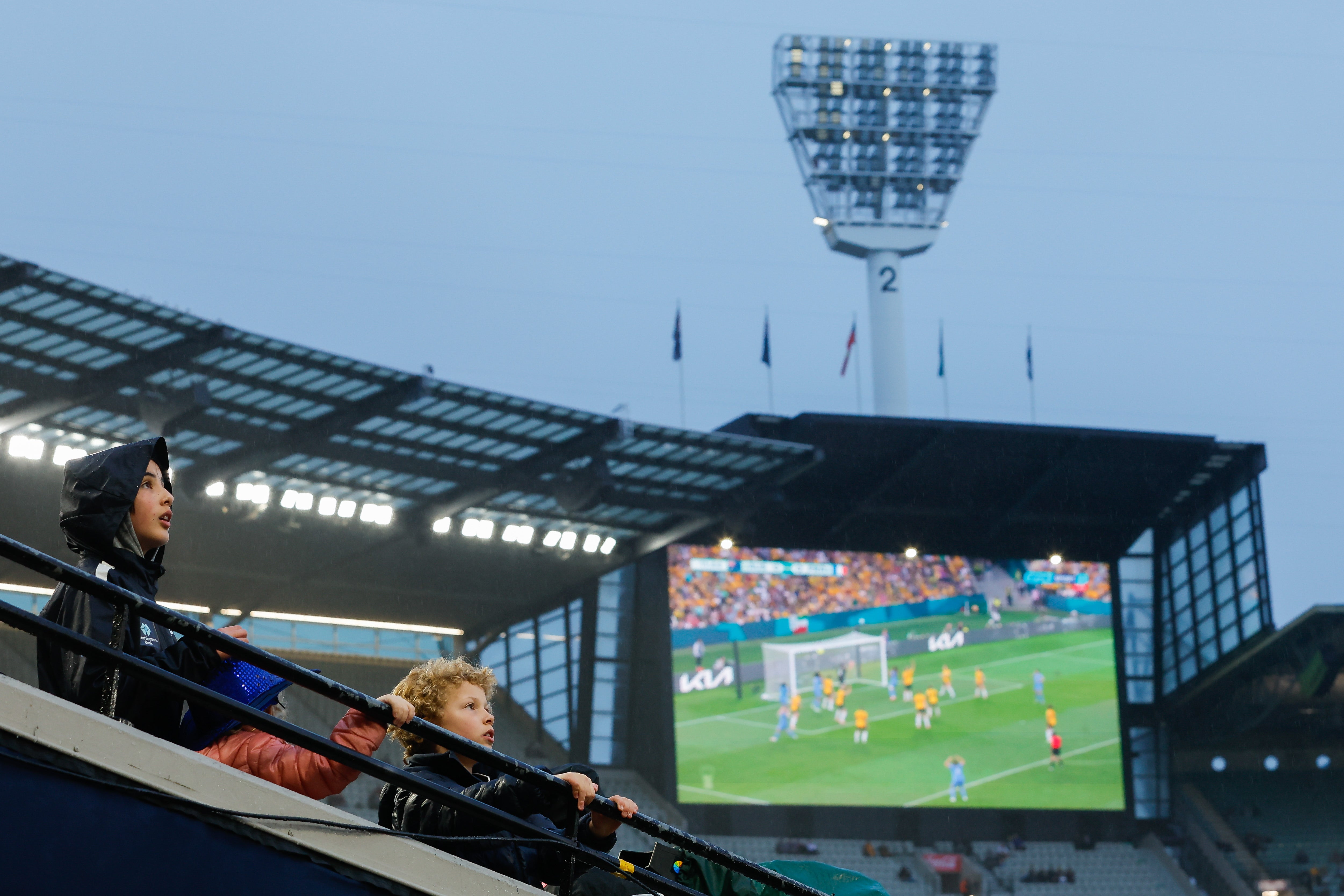
It saw the two powerhouses of Australia’s sporting winter, the Australian Football League (AFL, Aussie rules) and the National Rugby League (NRL, rugby league), bumped from the top of the TV schedules and the back pages of the morning’s newspapers. The Matildas were front-page news as well and, for the second match in a row, they pushed into Channel Seven’s evening news slot. It takes an extraordinary event to usurp the 7pm news in Australia, but for women’s football to do so is unprecedented.
“It’s just completely wild – that’s all you can say,” says Joseph Esposito, who works as a social media producer for the A-League, Australia’s professional football league. Joseph was one of the several thousand to have arrived at Sydney’s Olympic stadium to watch the Matildas, even though the match he and his family had tickets for was the later quarter-final between England and Colombia. He says the TV figures are not misleading: the Women’s World Cup and Australia’s progress to the final four has united the country in a way not seen since hosting the Olympics 23 years ago.
“This will change everything,” says Joseph. “People are waking up to the power of football.”
Most Australians rank football, or soccer, at around fifth or sixth in their sporting order, behind Aussie rules (“footy”), rugby league, cricket and basketball. But the stunning rise of the Matildas and the impact of the World Cup is disrupting tradition in a sports-mad country. While the codes of Aussie rules and rugby league have been institutionalised within Australian culture for more than 100 years, the Matildas represent something new. Crucially, they are also for everyone.
“There’s been a real cut-through,” says Natalie, who travelled across Sydney to the Olympic stadium with her 10-year-old daughter, Ruby. Natalie says she has always been a fan of the Matildas who, unlike the Australia men’s football side, have a history of being one of the top teams in the world, with three previous quarter-final appearances at the Women’s World Cup. But support and investment in the Matildas took time and the team Ruby sees now is unrecognisable to the one Natalie used to know. It was only eight years ago that the Matildas played a send-off match against Vietnam before the 2015 Women’s World Cup in front of only 4,000 people at a cricket oval in a southwestern suburb of Sydney.
But women’s football has come a long way since then and hosting the World Cup always had the potential to be a catalyst for further change. Led by a global star in Sam Kerr and with interest in women’s football across the globe booming following England’s home victory at the Euros last summer, Australia drew a crowd of more than 50,000 for their final warm-up friendly against France in Melbourne, then more than 75,000 for their opening game against Ireland – both were record-breaking attendances for the Matildas.
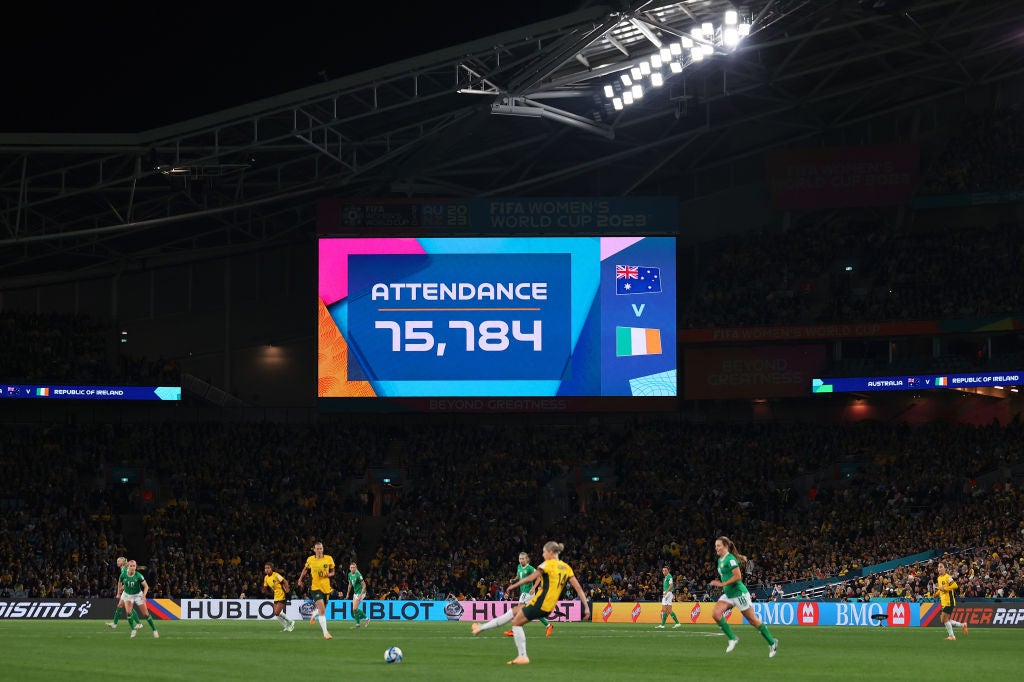
The core support for Australia was there, but the World Cup was still someway off reaching its transcendent levels for the quarter-finals. “At the start there wasn’t much advertising,” says Natalie. “Unless you were invested, people didn’t know there was a World Cup on.”
It didn’t help that the majority of the matches in the group stages were behind a paywall on a subscription channel. On the pitch, a nightmare situation was unfolding for the hosts as well: Kerr, Australia’s star striker and face of the World Cup, was ruled out of the group stages due to a calf injury. The Matildas struggled without their captain, and a shock 3-2 defeat to Nigeria left their tournament hopes hanging by a thread.
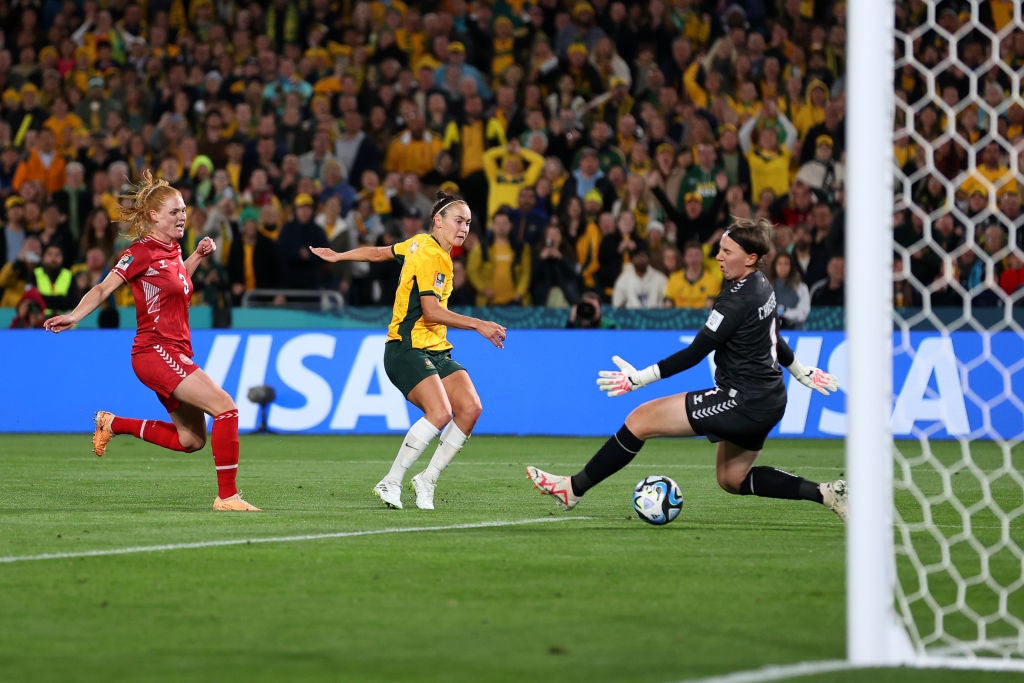
Facing elimination, Australia regrouped and smashed Olympic champions Canada 4-0 to reach the knockout stages, powering their World Cup into life and capturing the attention of those who were yet to take notice. What Kerr’s injury absence did was allow others to take centre stage: Hayley Raso, Caitlin Foord and Mary Fowler stepped up with important goals, then goalkeeper Mackenzie Arnold was the hero of the shootout with three vital saves against France.

“We’ve seen a huge difference since Canada,” says Natalie. While she was out at Stadium Australia with her daughter, the “blokes” in the family are invested too and were all gathering to watch at home on TV. “It’s amazing for women’s sport, to be on the front pages, and for everyone to be watching,” says Cate, who changed her plans with a friend to celebrate her 31st birthday by supporting the Matildas at the Olympic Park. “It’s crazy to see.”
Australia is having its moment, one experienced in England when the Lionesses won the European Champions on home soil last summer. England’s victory in the Euros final had a transformational effect on attendances in the Women’s Super League, participation in grassroots football and how the women’s game entered the mainstream. The parallels to the Matildas are clear. “We have someone to look up to now,” says Ruby. “The Matildas didn’t.”
Now they face England, in what will be a new chapter in the oldest and grandest of sporting rivalries. If playing in the semi-finals of the World Cup wasn’t big enough, there is now the added edge of coming up against the enemy, a contest that will capture the imagination and elevate the record-breaking interest in the Matildas to even greater heights. And on Wednesday night, Australia will come to a halt once again.
Join our commenting forum
Join thought-provoking conversations, follow other Independent readers and see their replies
Comments


Bookmark popover
Removed from bookmarks